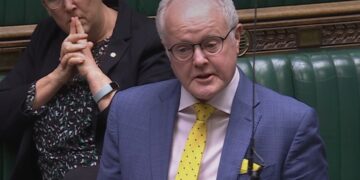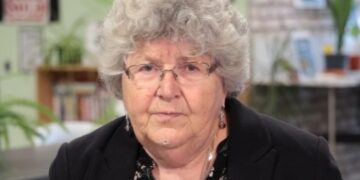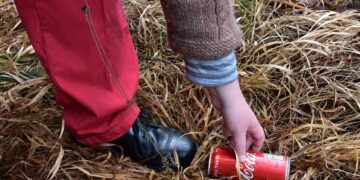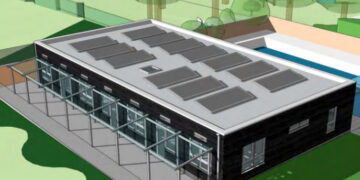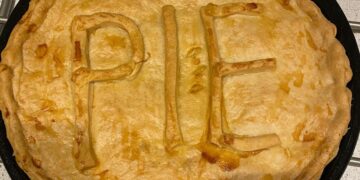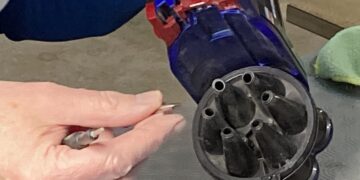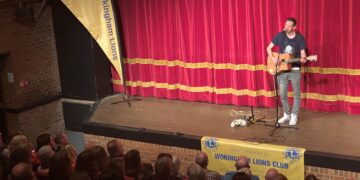IN A BID to reduce fly-tipping, the Local Government Association is urging manufacturers to launch a recycling scheme – something the trade body for bed manufacturers says is being worked on.
They argue that more than 33,000 mattresses – the equivalent height of almost 20 Empire State buildings if stacked on top of each other – were illegally dumped across England between 2018 and 2019. The figures came from research by The Furniture Recycling Group.
And the LGA says that mattress manufacturers should be forced to recycle their own products and offer take-back services to stop them being illegally fly-tipped and reduce cost pressures on council recycling and waste disposal centres.
The body added that its members – which includes Wokingham Borough Council – are being made to clear up the mess. They say that 7.26 million mattresses are sold in the UK every year, but just 1.36 million of them are recycled.
And mattresses need specialist treatment at recycling centres, such as re3’s sites in Reading and Bracknell, due to their bulky nature and mixture of metal and fabric components.
An analysis of flytipping waste reveals that 13% of illegally dumped items in England, over a five-year period from 2013-18, were mattresses. Dumped mattresses are also susceptible to arson attacks.
Further research reveals that the number of recorded fly-tipping incidents in England has soared by 50%, from 714,637 incidents in 2012/13 to 1,072,431 incidents in 2018/19.
And incidents have increased by 8% in the past year, from 997,553 in 2017/18.
The increase in choices of bedding and people now being advised to replace mattresses after eight years, rather than 12, is also thought to be fuelling sales and creating more mattresses in circulation – and a greater need to recycle them to reduce landfill.
The LGA also wants to work with the Government on reviewing sentencing guidelines for fly-tipping, so offenders are given bigger fines for more serious offences, and to ensure councils have the funding needed to investigate incidents.
LGA Environment spokesman, Cllr David Renard, said: “Dumped mattresses made up a quarter of all fly-tipping incidents in some areas in the past five years.
“Unwanted mattresses are fuelling landfill costs which continue to rise, putting pressure on waste and recycling centres which councils are working hard to keep open.
“Mattresses are bulky and hard to throw away, but are generally recyclable. Manufacturers need to take responsibility for the life-cycle of their mattresses and help councils and consumers dispose of them responsibly.
“Alongside being forced to offer take-back services and recycle mattresses as part of a circular economy, manufacturers need to be made to introduce mandatory take-back schemes to help reduce mattresses being dumped illegally and contributing to a fly-tipping bill of nearly £60 million a year to taxpayers in England.
“Fly-tipping is an illegal and inexcusable blight on society. Offenders need to be given bigger fines and councils need adequate funding to investigate incidents.”
But the National Bed Federation (NBF) says that it has targets in place to improve mattress recycling.
The trade association that represents UK manufacturers of beds and their suppliers and in November 2018, it announced a 10-year plan to recycle at least 75% of all new mattresses sold.
Jessica Alexander, executive director of the NBF, told Wokingham.Today: “We know that there is a large fly-tipping problem.
“We’re working on a partnership in Scotland with a scheme aimed at tackling some of these issues, but these can take time to organise.
“There are some significant challenges to overcome, but we are taking this quite seriously and working on solutions to bridge those gaps.”
The challenge includes the cost of transporting mattresses to recycling points and creating mattresses that can be recycled.
The Federation says it has engaged with governments across the UK to boost mattress recycling and hopes to launch an extended producer responsibility (EPR) scheme, along the lines that the LGA is suggesting.
As part of this, it has created a Register of Approved Mattress Recyclers and a Best Practice policy on mattress and components re-use, which forms part of its members’ Code of Practice.
Mattresses are highly visible when they are flytipped and the cost of collecting them usually falls on local authorities. Ms Alexander stressed that the National Bed Federation is pushing for a sustainable recycling scheme: “We hope to have something up and running within three to four months”.
“We estimate that at the moment 20% of mattresses are recycled. We’ve a long way to go to get it to 100%.
“It’s top of our agenda to get this sorted as quickly as possible, there are a lot of people who are very keen to engage, hopefully we’ll see something happening in a very short space of time.”


